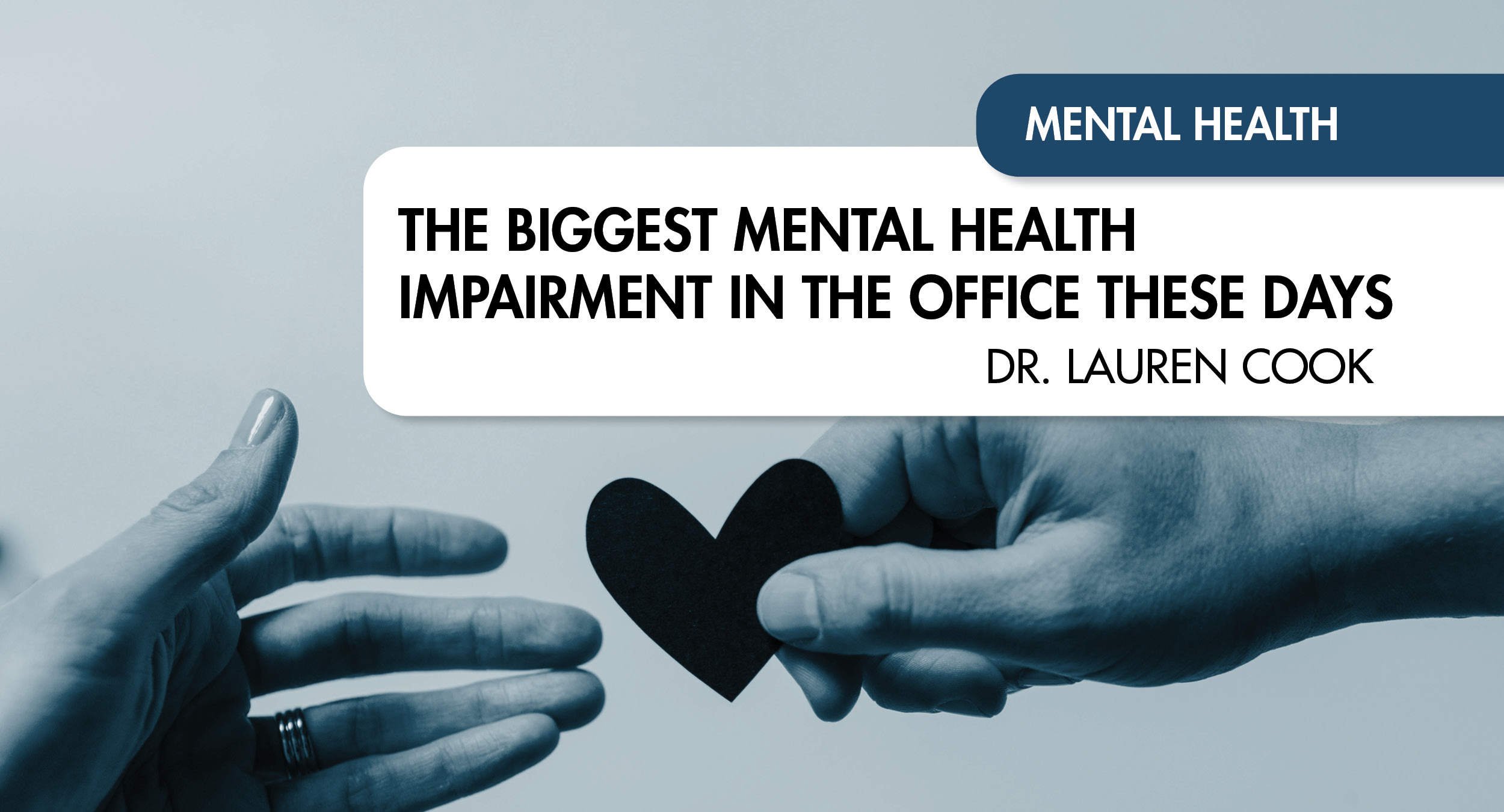
The Biggest Mental Health Impairment in the Office These Days
An interesting phenomenon has emerged since the pandemic…
It’s been taking businesses by storm and it’s happening in just about every in-person, hybrid, and fully remote roles…
As a clinical psychologist, what I am speaking about?
Social apathy.
In fact, your eyes may have glazed over just reading that. As you sink into your futon, you may be acknowledging that it’s been weeks since you asked your colleagues how they’re doing, found out about plans outside of work, or invited a co-worker out for coffee.
Now some of you may think that getting to know a co-worker as more than just that is pushing a boundary—or that it’s impolite.
And sure, if someone is throwing off vibes that they’re not looking to make a new friend, so be it.
But this is different than how it used to be.
What’s going on? We have lost our appetite to connect.
The most problematic part? We don’t even care.
This is especially concerning considering that, even before the pandemic, a 2018 survey by Cigna found that more than half of the participants reported that no one knows them well. Post-pandemic, another report from Wildgoose found that 1 in 5 young adults suffer from loneliness and isolation. I’d argue that it’s higher than that.
I’ve heard a similar narrative, both when I’m speaking in-person and when I’m visiting teams virtually (which I’d argue is about 90% of the work that I do).
Team members type in the chat that they’ve lost the hunger to engage.
Like a muscle, when we don’t use those social skills to ask questions, initiate, and self-disclose, those abilities can atrophy.
And what’s worse than forgetting how to connect? I’ll say it again: not caring.
As a therapist, I’m troubled by this and I’ll tell you why.
When we don’t care about each other as people, we’re even more disconnected and disengaged from the work that we do. Sure, it’s great if you’re passionate about selling printer paper (we know Dwight from The Office was). But most of us need more than a product or project to light us up.
We need one another. When we care about the people making the mission happen, and not just the mission itself, we don’t just experience a sense of accomplishment together.
We experience a greater sense of meaning.
When we’re seeing teams dissolve and retention as an uphill battle, it’s often because people are no longer connecting. It’s a lot easier to walk away when you can say to yourself, “What’s the point?” “They don’t even know me.” “What’s it matter?”
If our existing social connections are disintegrating, and we’re not invested in fostering new ones, you can see how this can quickly unravel how people thrive at work.
So, what can we do to lean into developing strong connections for the rest of this year, especially if you’re noticing that you or your community seems disconnected?
- Embrace the awkward: Let’s be real—being at a job, especially a new job, can feel a lot like adult kindergarten. While we normally work through this phase in the first six months of a position, the stop-start of the last few years have left many of us feeling like they’re in more of adult preschool. Know that it’s going to be a little uncomfy but breaking the ice is a necessary process to get the closeness that we’re looking for.
- It doesn’t matter how far along you are in your journey: I work with many employees who tell me that it’s simply too late to connect and make new friends. Not so, my friend. Please don’t perpetuate the hashtag, #nonewfriends. You never know how relationships can evolve if you’re open sharing and expressing an interest in the people you work alongside.
- Join an Employee Resource Group, even if it’s virtual: I know it can be easy to say with the virtual meetings, “What’s the point?” What people don’t always realize is that the connections you’re building today can grow for years to come.
If you’re noticing that you’re feeling isolated and your mental health is suffering at work, let’s talk. I’d love to spend time with your team and whether it’s my programs on mental health or through a consultation, I’d love to meet with you and get to know you for you—and not just for the work that you do.
